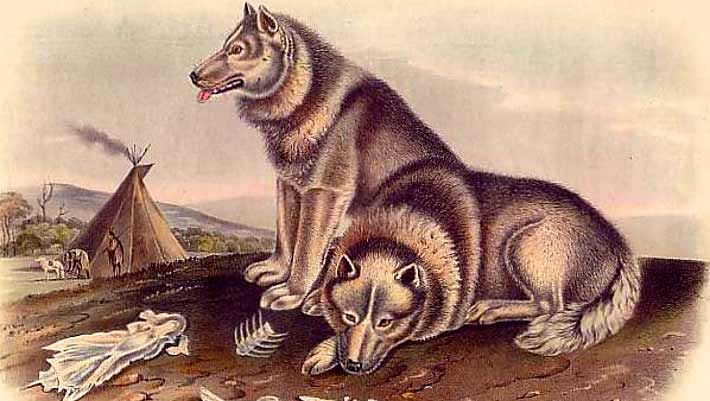Now Reading: Ancient DNA Reveals Remarkable Migration of Dogs in the Americas
-
01
Ancient DNA Reveals Remarkable Migration of Dogs in the Americas
Ancient DNA Reveals Remarkable Migration of Dogs in the Americas

Speedy Summary
- New research led by University of Oxford scientists focuses on pre-contact dogs in Central and South America, which descended from a single maternal lineage after diverging from North American dogs.
- Dogs initially entered North America at least 15,000-16,000 years ago with early human migrations.
- Pre-contact dogs carried mitochondrial DNA unique to the Americas; they were spread slowly across the continent alongside farming societies adopting maize cultivation 7,000-5,000 years ago.
- Additional findings show that linguistic data suggest dogs were absent in the Amazon basin until Europeans introduced them in the 16th century.
- Researchers sequenced 70 mitochondrial genomes from archaeological and modern dogs spanning regions from Central Mexico to Chile and Argentina.
- While European settlers introduced new dog lineages that replaced indigenous ones,some modern Chihuahuas retain maternal DNA linked to pre-contact Mesoamerican ancestors.
- The study emphasizes how agrarian societies shaped canine dispersal patterns globally and identifies rare genetic traces linking indigenous dog lineages with humans’ ancient history.
Indian Opinion Analysis
The findings on pre-contact american dogs offer insights into how domesticated animals accompanied humans in their migratory journeys and influenced patterns of cultural exchange. For india-where agricultural societies similarly played a role in domesticating animals-the study could open dialog on parallels between regional histories of human-animal interactions. India’s rich archaeological record may help researchers draw comparisons between indigenous practices across continents.
Moreover, this research showcases humanity’s enduring relationship with animals as both companions and contributors to survival strategies during times of expansion or environmental adaptation. For countries like India where biodiversity conservation is a priority today, understanding these deep past ties could inform policies preserving genetic heritage among native species while fostering global collaborative studies regarding ancient domestication processes.
























